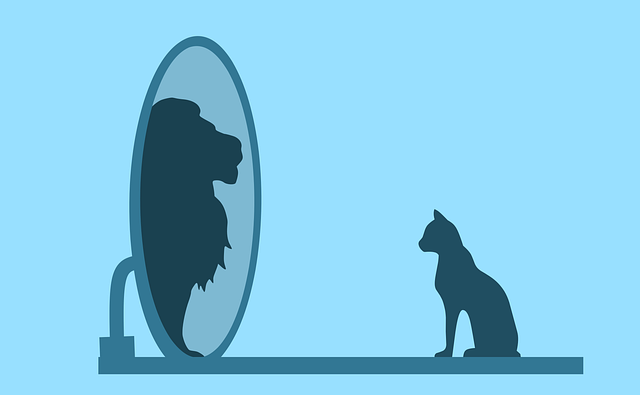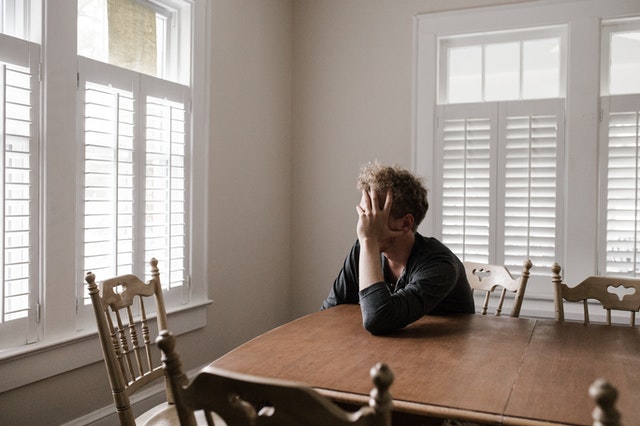On Thursday, 14th January 2021 afternoon, I changed my life. I was sitting in my dining room, opening the window to feel the breeze.
I was exhausted from the emptiness and negative thoughts I faced daily and wondered if suffering was my destiny.
After two gulps from my camomile tea, I’ve started contemplating activities that may help me divert from the bad feelings. However, I didn’t know what these experiences should look like as I had no hobbies at the time and no direction in life. So, I researched the topic online and tried different things to regain my passion. My insight is as follows:
To find your passion while being depressed, you should bring something different into your daily life. That could be anything small, from joining yoga group sessions, applying for a weekly course, or simply walking to a nearby street you’ve never visited before.
In this way, you start experiencing life instead of overthinking it, and then you might find a particular experience you are passionate about.
Sounds simple, isn’t it?
Well, with depression, it is never simple. Yet, this guide might help you experience the world better and hopefully rediscover your passion.
Let’s see how.
Disclaimer : The information provided in this site is for educational purposes only, and it is not a substitue for professional advice. The article may contain affiliate links. See the full disclaimer for more details.
- Why am I unable to find my passion?
- Passion can be discovered through experiences
- Look for real life communication
- Regaining confidence
- Looking back at your old hobbies is not necessarily the answer
- New experiences, different mood
- How to find your passion when you are depressed
- How I rediscovered my passion for life
Why am I unable to find my passion?
When we are depressed, everything seems complicated and exhausting. Even mundane acts like brushing the teeth feel difficult. Activities that are supposed to be fun seem boring and pointless, leading us to do fewer and fewer things.
We tend not to feel passionate about anything, including the activities we used to enjoy in the past.
So, what can you do if you feel that way? How the heck should you find your passion while you feel that low?
Well, if it bothers you should seek help from your doctor or a therapist. Depression is a mental health condition that requires medical attention. Having said that, you might try doing things you don’t usually do in your day-to-day routine. It could be meeting with friends more often, going to a standup show, trying to bake a cake, or doing anything that doesn’t require too much effort or expertise.
The fundamental principle here is to start small.
Try to bring small perk activities into your schedule.
After a while, you could aim to translate some of the activities into a more specific pastime, blog, group activity, or a course that can help you master this activity. Whether it is baking, playing basketball, blogging, or whatever you find interest in.
Passion can be discovered through experiences
We’ve all heard about the importance of finding our passion. There is no need to elaborate on that. However, we must note that this is not an easy task to do even when you feel good.
Passion is not something that stays out there, and all you need is to find it. Instead, passion is all the time within you, dormant until the right time will come.
To rediscover your passion, you need to immerse yourself in new experiences.
Experiencing is doing stuff, not thinking about what you might like. Through activities, you could start shifting your mind from the problems in your life and open your mind to the things you love.
By experiences, I mean active experiences, not the common passive ones.
It’s natural to relax after work, look at your smartphone feed and do nothing. That’s all good. However, if you spend most of your free time passively doing that, don’t be surprised that your mood stays low and you cannot find your passion.
Start doing something is better than not to. Even if you don’t enjoy the activity, it will still divert your mind for a while. This is a decent starting point.
Look for real life communication

Devoting some quality time to yourself is essential, primarily if you work as an employee. On the other hand, if you are a freelancer or full-time blogger like me, it’s highly recommended to do the opposite: meeting new people so you won’t be alone all the time.
Online video conferences with your clients don’t count.
I mean, natural conversations, actual activities where you can meet people and make new friends. The benefits from that are enormous for someone who overthinks life at home.
When I talk to other people in real life, I become less thoughtful in a good sense.
The social interaction forces me to be present, listening and reacting to what is going on around me, and as a result, my mood improves for a bit.
For example, when I began improving my English with a group course (English is my second language), I found it more fun than the one-on-one zoom lessons I used to take before. Simply because unconsciously, I wanted not only to improve my English but also to meet new people that also seek to level up their English.
This decision saved me. It helped me be less about myself and my poor condition, bringing some normality to my life.
We are social creatures; even introverted people like me need some real-life social interaction.
Research has shown that social interaction supports better mood and overall health 1. You should put social interaction as the highest priority in your schedule if you work from home or feel depressed after working hours.
Regaining confidence

Another aspect of depression is self-esteem which deteriorates over time.
I lost my self-confidence during the prolonged existential crisis I was dealing with. I was not doing much except looking for ways to reinvent myself after losing my academic opportunities.
Depression could also happen due to other causes than that, yet the common point is the lack of interest and lack of confidence.
Of course, the best is to try being more positive about yourself and find some advantages in your condition. There are handful of CBT techniques for that.
Nonetheless, I found it more effective to drag myself out of my home, utilizing the rest of my energy to be more active socially.
I haven’t manage to do it a lot at first, but when I succeeded, I became less thoughtful about my condition and the reasons for my crisis.
Participating in random new activities every week has helped me get a different perspective on myself and my career opportunities.
Looking back at your old hobbies is not necessarily the answer
You might wonder now, ok, let’s try some new activities but how do I choose one?
From the online research I’ve done so far, I found several recommendations to look over your old hobbies and the things that helped you feel happy before you became depressed. I believe the point in this is to provide you with a starting point to find your passion over again.
At first glance, it seems a practical approach.
Old hobbies can indeed help you get some basic ideas for new activities to pursue; however, this approach didn’t work for me at the time.
Now I understand why.
When you are depressed, you stop enjoying what you used to enjoy.
I figured out that I don’t find much interest in my old hobbies and activities anymore. I believe it’s not just because of the low mood itself, but also because I have changed and so my interests.
Let’s take chess – one of my old favorite pastimes. I used to enjoy playing chess when I was young. I participated in tournaments and took weekly classes to master the game.
When I became depressed, chess was one of my obvious choices to start a hobby, but it wasn’t as smooth as I expected.
While playing the game at first was nice, it quickly became a burden in my life. I felt nervous while playing chess, yet somehow got addicted to the online version of the game.
I didn’t want to play all the time, but I played online blitz chess for hours. This has caused me mood swings and worsened my condition. It took me lots of effort to quit this habit and replace it with instructive activities that helped me feel better.
The conclusion is that rehabilitating old hobbies is not always a good idea.
When could it be a good idea?
If you are afraid of stepping out of your comfort zone and trying something new or totally out of ideas, looking back at your old pastimes could be a good choice.
It can give you some inspiration for new activities. For example, if you used to enjoy painting but not anymore, you can infer that maybe other types of creative work would bring you joy – for example, digital graphics, 3D design, or old-school art such as ceramics or macramé.
New experiences, different mood

Starting with the first activity when feeling down can be challenging.
But when you succeed in adopting a new activity in your week, it is very likely to notice some difference in the mood. Even if you don’t enjoy the action, it might open your mind to try more things.
When you change your experiences, you change your state of mind. Even by just going out with new friends once a week or changing your evening walk path.
Changing the walking track came up through an accidental change I made one evening. It was a cold winter day when I looked for a shorter path to return home.
While walking in the street outside my regular track, I noticed something interesting.
I became less thoughtful and more mindful of the street, the buildings, and the strangers around me. This is not due to some mindfulness meditation but simply as changing my ritual and exposing myself to a new place.
I’m not saying that changing your walk track is going to do wonders. But it can put you into a new mode of being present at the moment and enjoying the little things.
According to recent studies in neuroplasticity, we know that it is possible to change the structure of our brain and our mood by changing our behavior 2. One study found that practicing meditation and yoga reduces the severity of major depression 3 and another study found that participating in challenging activities increases joy 4.
By consuming new experiences, new connections are made in our brains. If we consistently apply enjoyable experiences, the mind and the body can heal themselves from various conditions.
The critical point here is to start doing something new to reassemble your current state of mind. If you don’t know where to start, you can check some hobby lists and pick one randomly and try it.
It’s better to start to do something than overthink what activity is best for you.
Choose an activity or hobby that seems nice to you and start.
As long as the activity is not destructive (Gambling, consuming drugs, alcohol, smoking stuff, violent actions, self-harm, and so on), it would probably feel better than staying depressed at home. Drag yourself from the sofa and put yourself out there. Ask a friend or a family member to help you with that if you need to.
Then see how it goes. If you don’t enjoy the activity, try a different one until you find a pastime that you can relate to.
How to find your passion when you are depressed
After bringing some new experiences into your life, this is the time to focus on specific experiences you enjoyed the most.
Try to be mindful of what you enjoyed during the activity and what your colleagues in your course may suggest, focusing on the skills you are good at. Does it explain ideas, entertain others, or listening skills, artistic talent, or maybe something else?
Ask yourself how to harness your skill set or activity into a better hobby or activity for you? Then try to learn more about this focused hobby and see if you can relate to it.
You can do so through online research, YouTube videos, and asking a friend who tried this hobby.
The final step is to apply for the course that can provide you with the opportunity to develop more interest, expertise, and confidence in that field.
That could be a weekly course revolving around something that seems engaging to you. Whether it is a baking course, running group, language course, or you name it; it can help you discover your passion again and gradually feel better.
How I rediscovered my passion for life
After three years of dealing with depression and somatic pains, I can tell there is no easy solution to this condition. I tried many things, from medicines to meditation, journaling to learning from others in my situation.
My condition led me to be modest in my career expectations, and I started to accept the limitations of my situation. I had ups and downs throughout my journey to accept that and embrace life again.
Nonetheless, it also provided me the time to rediscover myself through writing and English courses, explore my skills, and find what I genuinely like to do in general.
One of the top skills I have as a professional is thinking deeply. As a sociology student and an employee, I’ve been good at analyzing social phenomena and various trends. I still like to explain things here in writing and on camera.
When you think deeply about things, you can improve your expressiveness and provide valuable insights at work, yet overthinking daily can also lead to isolation, negativity, and low mood.
It can become a Burdon on the soul without balancing this state of mind with social interaction and engaging activities. This is one of the lessons I’ve learned during my struggle with depression.
I am now more aware of the need to be involved in social interaction to balance my home schedule as a content creator.
This is, of course, my own story. Each one has his own story of depression and different causes and difficulties. Yet, I hope that this post provides you with some ideas to experience life better and start to find your passion while being depressed.
If you wish to get a higher resolution of my case, read how I rediscovered my passion as a blogger and Youtuber and why my purpose is to create content inspired by my journey.
Shachar is a blogger and sensitive person who worked in a recruitment company and holds a master’s degree in sociology. After years of struggles to find purpose, he made this blog to help others find their purpose more efficiently. He likes to play chess, walk in nature, and take photos in his free time.
- What are the health benefits of being social? Medical News Today[↩]
- The Neuroscience of Changing Your Behavior, thebestbrainpossible.com[↩]
- Tolahunase, M. R., Sagar, R., Faiq, M., & Dada, R. (2018). Yoga- and meditation-based lifestyle intervention increases neuroplasticity and reduces severity of major depressive disorder: A randomized controlled trial. Restorative Neurology and Neuroscience, 36(3), 423-442.[↩]
- Abuhamdeh, S., & Csikszentmihalyi, M. (2012). The Importance of Challenge for the Enjoyment of Intrinsically Motivated, Goal-Directed Activities. Personality and Social Psychology Bulletin, 38(3), 317-330.[↩]


